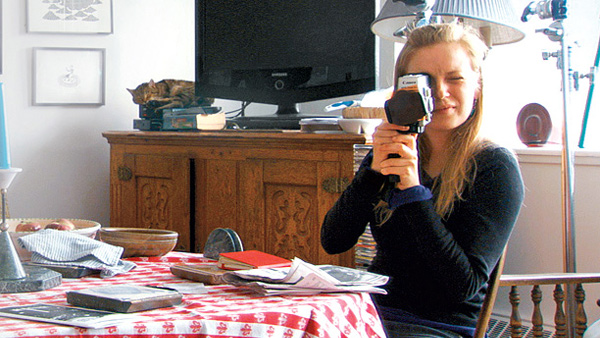What Else I’m Watching: September 2013
Posted on September 30, 2013 By John Gilpatrick Editorials

Because you can’t review them all.
Sadly, life gets in the way of writing about everything I see, so this space is as much for keeping track of what I’m watching as it is for you to share your thoughts on what are, with any luck, a group of high-quality films.
It’s an eclectic bunch this month, as I found myself getting pulled toward some classics and other older films I haven’t seen from directors I like. Not everything clicked, but still, I watched some good movies this month (see also The Bling Ring, Prisoners, and Blue Jasmine).
Modern Times
RATING: 



(1936, 1 viewing)
It’s almost astonishing how much ground Charlie Chaplin covers in his 1934 silent comedy—one of the last of its kind—Modern Times. You can see the film’s stretch marks; it’s not lean by any definition of the word. But like most Chaplin pictures, individual gags are sweet, funny, and lasting. This one is front-loaded—all the best moments occur in the first 30 minutes—but it remains mostly delightful throughout.
3-Iron
RATING: 



(2004, 1 viewing)
Kim Ki-duk, and modern Asian cinema more broadly, is a major blind spot of mine, and with Filmspotting marathoning some of Korea’s best, I thought I’d try to follow along. The first film in their modern Korean auteurs marathon was this romantic puzzle from 2004. I won’t recommend it to anyone but the most adventurous moviegoers, but it haunted me, and weeks later, I’m struggling with what to say about a film that’s so emotionally bare and logically obtuse.
Stories We Tell
RATING: 



(2013, 1 viewing)
My borderline lukewarm response to director Sarah Polley‘s latest—a documentary about her own life—certainly didn’t have anything to do with any lack of willingness on Polley and her family’s part to open up on camera. The film is almost shockingly honest; in fact, one chapter late in the film deals with whether Polley’s project is really doing her family any good. And it’s not my place, of course, to answer that question, but I did feel a little voyeuristic and uncomfortable watching a family talk about a deceased woman’s hidden secrets. That secret, however, literally defines Polley’s life, and she has chosen to share it with the world. Count me as an admirer of her courage, if not a lover of this film.
A Prairie Home Companion
RATING: 



(2006, 3 viewings)
“Bittersweet” doesn’t even begin to describe this one. It’s a charming comedy set around Garrison Keillor’s real-life radio show, but it’s ultimately a film about death, and it happens to be the great director Robert Altman‘s final film. I won’t argue with those who might call A Prairie Home Companion a tad pretentious, but I that here, it’s a worthwhile quality considering the folksy, very unpretentious nature of Keillor’s show and the film’s comedy. That a film could feature two characters as dissimilar as Kevin Kline’s Guy Noir and Virginia Madsen’s Asphodel and still work is a minor miracle and a credit to Altman’s brilliance.
The Departed
RATING: 



(2006, 10+ viewings)
I reviewed The Departed in the early weeks of John Likes Movies, and I’ve watched it a number of times since. It’s simply one of my all-time favorites—endlessly watchable, marvelously constructed and acted, and supremely entertaining.
Sex, Lies, and Videotape
RATING: 



(1989, 1 viewing)
Sex, Lies, and Videotape is famous for winning the Palme d’Or and basically starting the American independent film movement. It’s also Steven Soderbergh‘s directorial debut and, I think, very much of its time. Its sexual frankness didn’t hit me the way I suspect it hit audiences back in 1989. And James Spader’s character’s sexual quirks don’t seem as menacing and threatening in the post-internet age. The film’s quiet, talky nature allows the four main actors to shine, but their performances weren’t in service of much, sadly.
Moneyball
RATING: 



(2011, 4 viewings)
I’m always floored when I watch Bennett Miller’s Moneyball. You’d never expect a film about bean counting and baseball to be so deep, so artfully constructed. The editing is subtly complex and astonishingly sure of itself. The cinematography captures all the romance in professional baseball, which gets me every time. Brad Pitt’s performance is layered and unexpected. There isn’t a flaw to be found. If you wrote it off back in 2011 (I nearly did), give it another shot. You won’t be disappointed.
Vertical Limit
RATING: 



(2000, 3+ viewings)
This was the first ever DVD I bought. Ever. [Number not provided] more later, and I’m coming back around to Martin Campbell’s riff on Cliffhanger for no other reason that I remember having a lot of fun with it as a 13-year-old. As a 25-year-old, I have more to say about it than “That was AWESOME”—for example, “The effects are cheesy”, “Paul Walker is not a leading man”, “Is that Ben Mendelsohn?”, and “THAT IS BEN MENDELSOHN!”—but I still had fun with it. Quite a bit of fun, actually.
3-Iron, A Prairie Home Companion, Modern Times, Moneyball, Sex Lies and Videotape, Stories We Tell, The Departed, Vertical Limit













